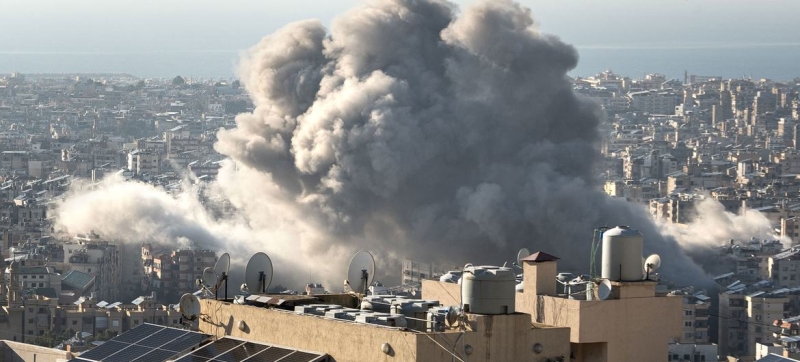
A strike in the outskirts of Beirut, November 15, 2024. WHO: Lebanon health workers face grave threats to their work Peace and Security
Nearly half of all attacks on health facilities in Lebanon result in the deaths of health workers or patients, a higher rate than in any other active conflict, including fighting in Gaza and Ukraine, the World Health Organization (WHO) said today.
As of 21 November 2024, 47 per cent of such attacks on health facilities since 7 October 2023 – 65 out of 137 – have resulted in deaths in Lebanon, according to the WHO Tracking of Attacks on Health Facilities system.
This compares with a global average of 13.3 per cent, based on information from 13 countries or territories that reported attacks on health facilities in the same period, including Ukraine, Sudan and the Occupied Palestinian Territories (OPT). In the OPT, 9.6 per cent of such incidents resulted in the death of at least one health worker or patient.
Healthcare must be protected
According to WHO, between 7 October 2023 and 18 November 2024, 226 health workers and patients were killed and 199 were injured in Lebanon. During the same period, a total of 1,401 attacks were recorded in the OPT, Lebanon and Israel (1,196 in Palestine, 137 in Lebanon and 68 in Israel).
“These figures once again demonstrate an extremely worrying trend. It is clear that denying civilians access to life-saving medical care and targeting health workers is a violation of international humanitarian law. The law prohibits the use of health facilities for military purposes, and even if it does happen, there are strict rules of procedure, including mandatory warnings and a waiting period after them,” said WHO representative in Lebanon Abdinasir Abubakar.
Casualties among health workers
Most (68 percent) of the incidents in Lebanon recorded by the WHO system involved health workers. The greater the loss of health workers, the weaker the country’s ability to recover from the crisis in the long term, the organization emphasizes.
Read also:
UNICEF: Lebanese children at risk of same fate as Gaza children
Attacks on health facilities are a double blow. First, the death of health workers or the destruction of hospitals is a tragedy in itself. Second, in the weeks and months that follow, wounded and chronically ill patients are not treated and children are not vaccinated.
“Numbers alone cannot convey the scale of the long-term consequences of the lack of health care, the loss of access to maternal, sexual and reproductive health services, and the diagnosis of treatable diseases,” Abubakar said.
One in 10 hospitals damaged
Lebanon is a country with a fairly developed health system, which has nevertheless been hit hard by multiple crises in recent years, the WHO notes.
Today, the health system is under serious pressure: 15 out of 153 hospitals have ceased functioning or are only partially functioning. For example, Nabatieh, one of Lebanon’s eight governorates, has lost 40 percent of its hospital beds.
Four peacekeepers wounded
Meanwhile, the UN Interim Force in Lebanon (UNIFIL) reported on Friday that two rockets hit the Western Sector headquarters in Sham earlier today, wounding four peacekeepers from Italy. According to the mission, they are receiving treatment in hospital and fortunately their injuries are not life-threatening.
UNIFIL added that rockets, likely fired by Hezbollah or affiliated groups, hit a bunker and logistics area used by the international military police, causing significant damage to nearby infrastructure.
This is the third attack on the UNIFIL base in Sham in a week. UNIFIL urges the parties to avoid fighting near peacekeeping positions. “The inviolability of United Nations premises and personnel must be respected at all times,” the mission said.
